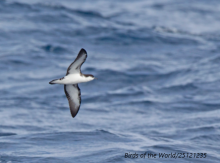
LIKE many coastal communities in Fiji, the villagers of Nabouono in the remote district of Udu, Macuata have long relied on the sea to sustain their livelihoods. Among the marine life that have been central to their diet and customs, sea turtles hold a special place; not just as a source of food but as a symbol of tradition and identity.
In the past, Nabouono villagers would harvest five to seven turtles per communal event or special gatherings like weddings, funerals, and chiefly ceremonies. These traditional gatherings were incomplete without turtle meat, a culturally-significant delicacy. But over time, that tradition, once sacred, became a growing concern. The unsustainable harvesting of turtles posed a direct threat to their population in the region. Udu is one of fourteen districts that are traditional custodians of the Great Sea Reef.
Stretching over 200 kilometres, the barrier reef, known among locals as Cakaulevu, is the third-longest continuous barrier reef system in the Southern Hemisphere. It is critical not only for biodiversity but also for food security. Close to 80 percent of the fish that feeds the urban population in Suva are sourced from the reef.









